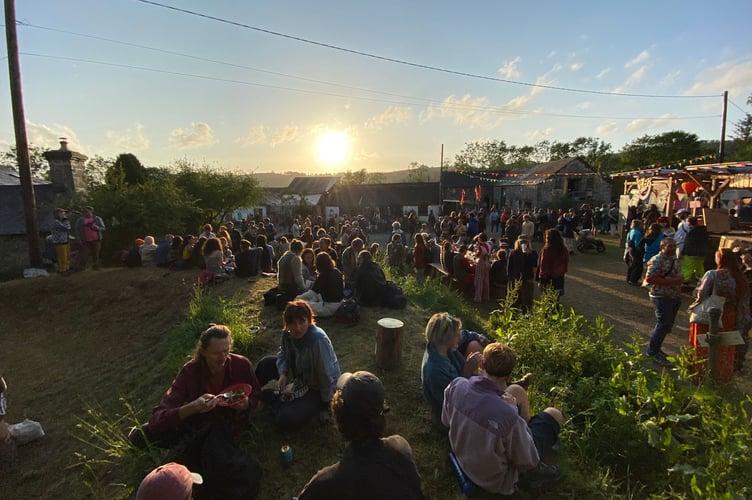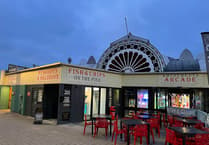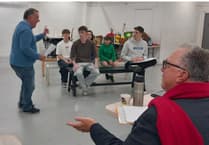Fire in the Mountain Festival isn’t a normal festival.
With a capacity of just over 2,000, the intimate gathering takes place on an old Welsh farm in the Cambrian Mountain foothills.
Set up in 2011 as a way to restore an old farm, the folk festival has snowballed into a huge “family” affair, with no single-use cups or dishes, and all profits go back into the land or festival, reclaiming 99.7 per cent of its waste in the last two years.

Speaking about this year’s festival, which took place from 29May - 1 June south east of Aberystwyth, organiser Rose Lander said: “Feedback has always been amazing, I’ve never met someone who doesn’t want to come again.
“People come because they love it.
“There’s a sense of connection - we don’t over-decor the site, we do things in sympathy with the landscape rather than disguising it.
“We don’t differentiate between crew and ticket holders, there are no special wristbands or crew-only areas.
“There’s almost no signal, so no one is on their phone, people walk with their heads up and talk to each other.
“We don’t have any commercial shopping aisles, our craftspeople and traders are local.
“There are many factors that make Fire in the Mountain something magic - it’s an opportunity to connect.”

Described as “put on by musicians for musicians,” it features Welsh folk to bluegrass, with returning artists Johnny Flynn, Cerys Hafana, Dogshow, plus new artists like Cairi Jacks and Mama’s Broke - playing, hosting instrument or style sessions and jams.
It started life as a group of friends recruiting volunteers to help the late owner, Marianne, with her farm, inviting bands, some beer kegs and creating a party out of it.
This stands true for the small festival today - every April volunteer week focuses on big tasks such as repairing the barn with the help of local stone masons, reroofing, turning a pile of rubble into a fire pit, or this year, repairing the sauna after it was hit by a tree during Storm Darragh.
The site has evolved from needing urgent repairs to having compost toilets and a shower block with a reed-bed water filtration system.
The festival still benefits from volunteers, but now has a ‘Universal Basic Wage’ paying all crew who work over their 16 volunteer hours the same wage and meals, described as “important and unusual for festivals” but a “way of spreading the love”.

Along with their policy of using local traders, locals get discounted tickets and access to Sunday day tickets, which feature Welsh artists and a local traders market.
The festival has washing up stations across the site, manned by volunteers cleaning dishes to re-circulate to food and drink stalls, recycling is sorted by punters and waste is sent to Lampeter for repurposing.
After hosting a Music Camp and Family Camp each summer, the land goes back to being a working farm.
It has sold out every year for years, probably because of the “community we’ve created”, says Rose.




Comments
This article has no comments yet. Be the first to leave a comment.